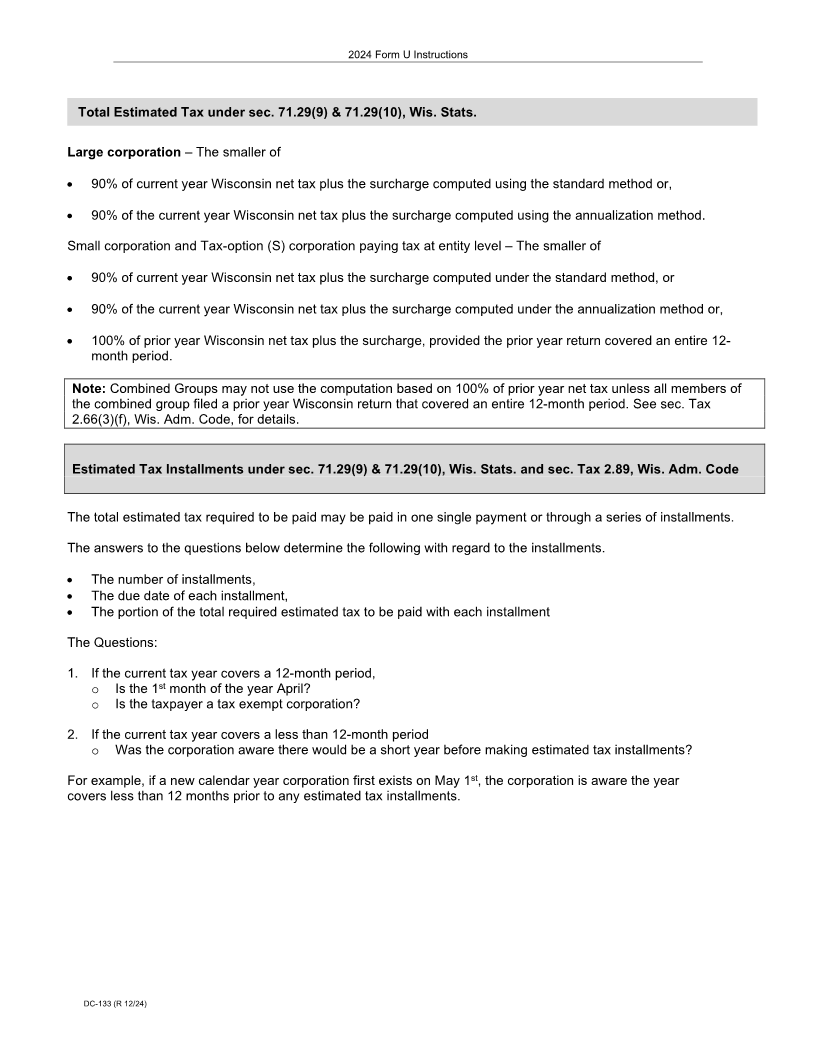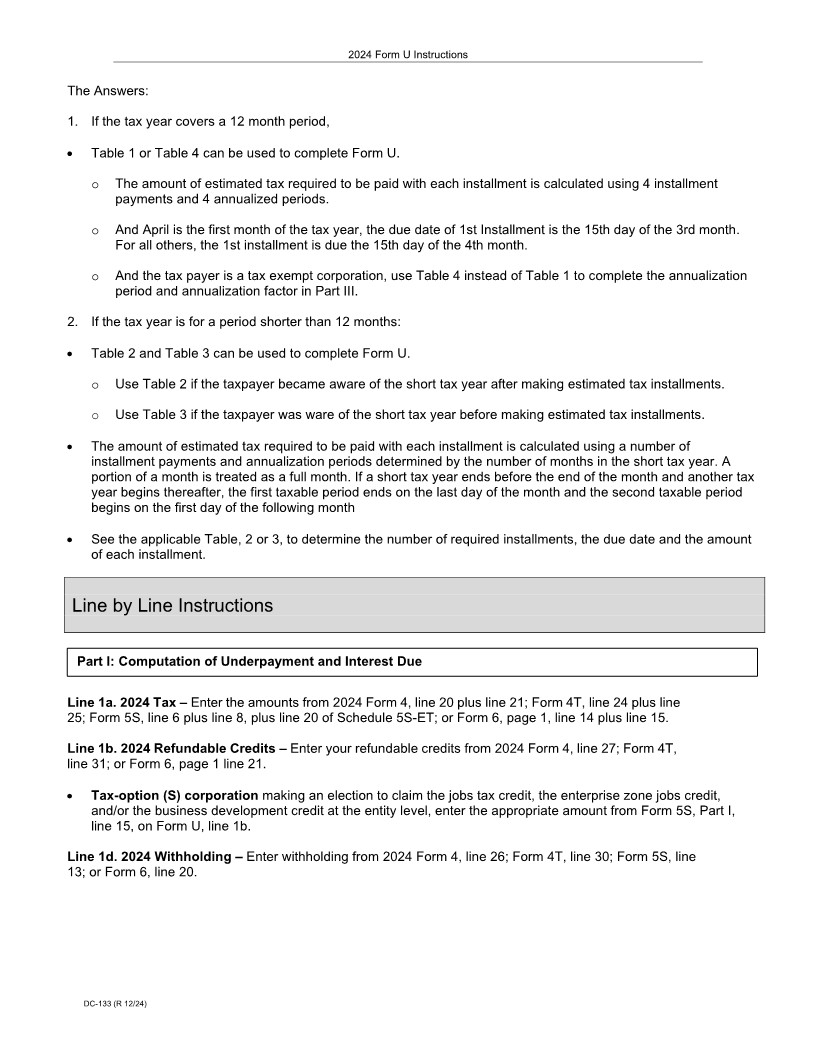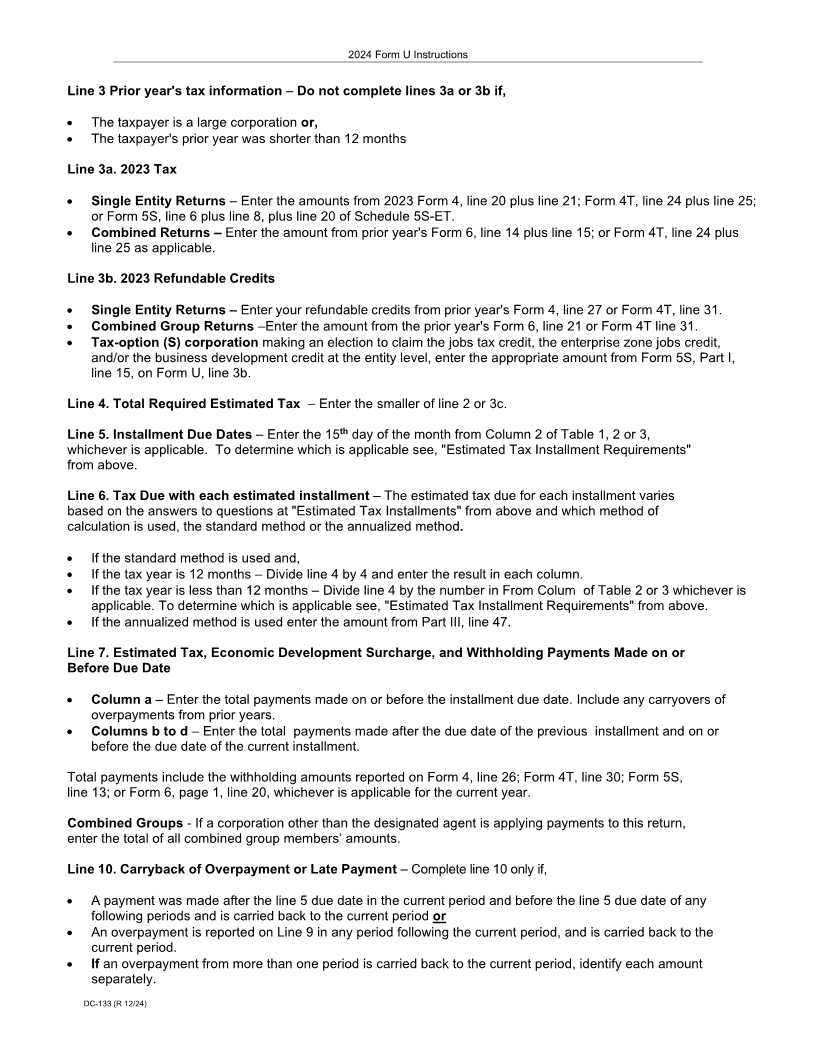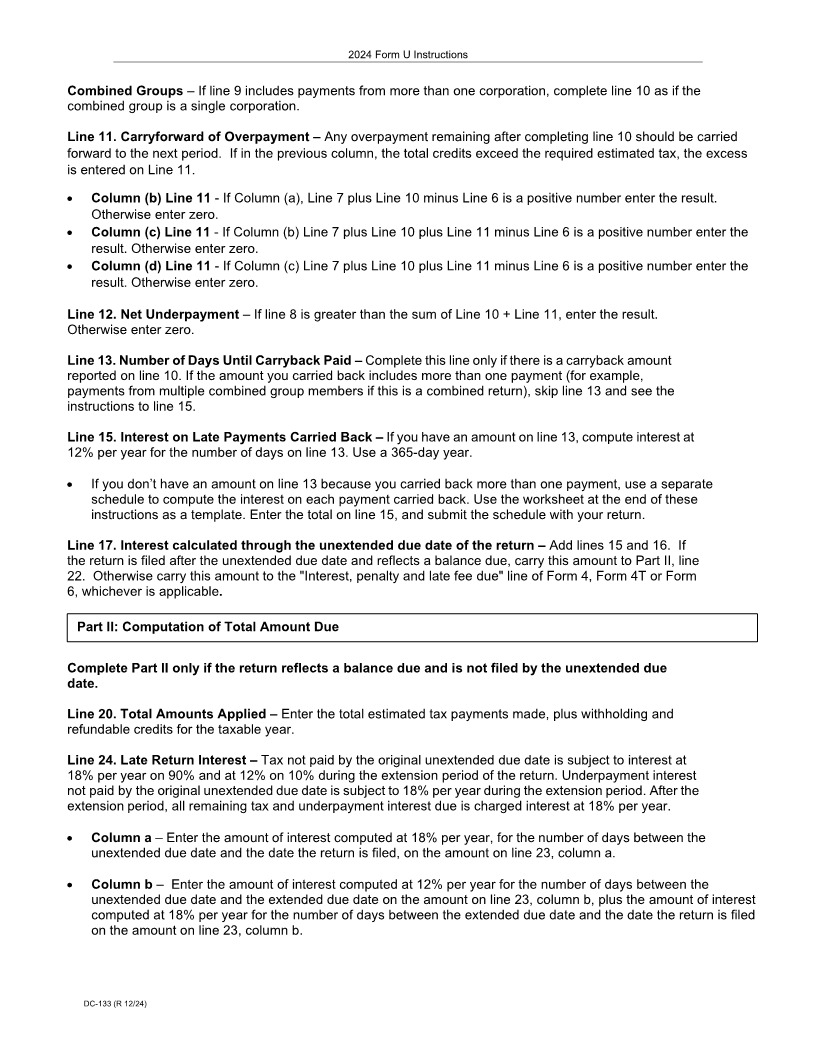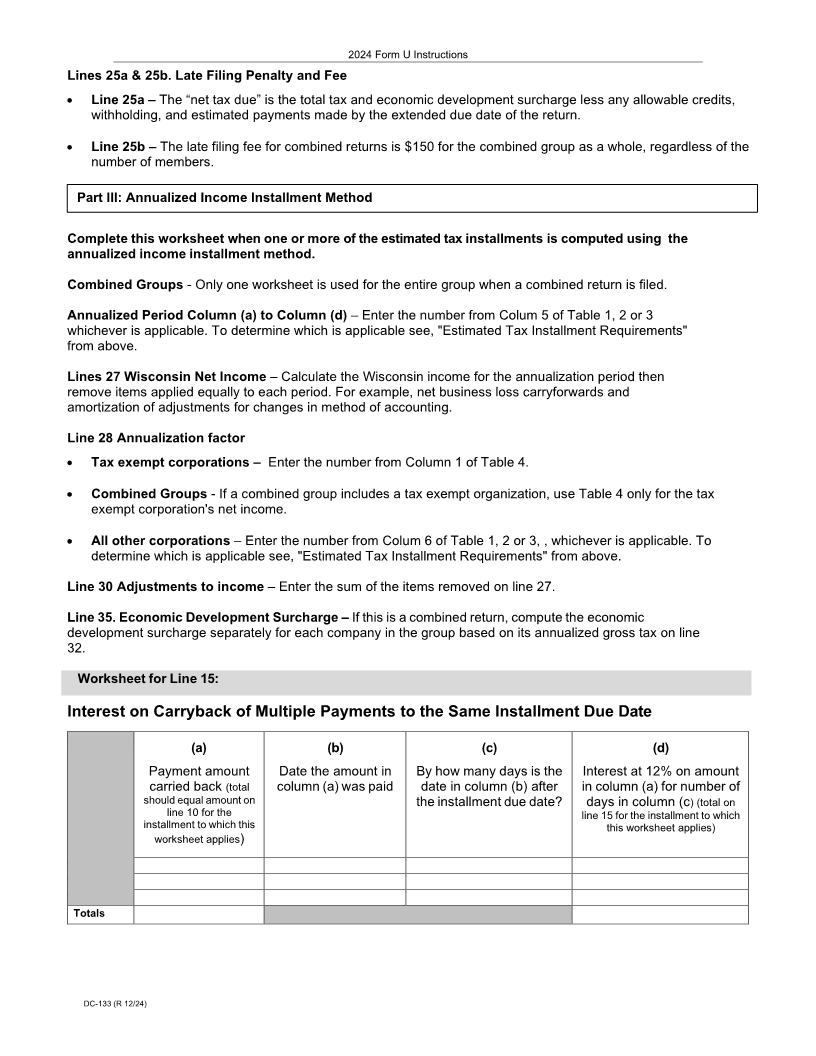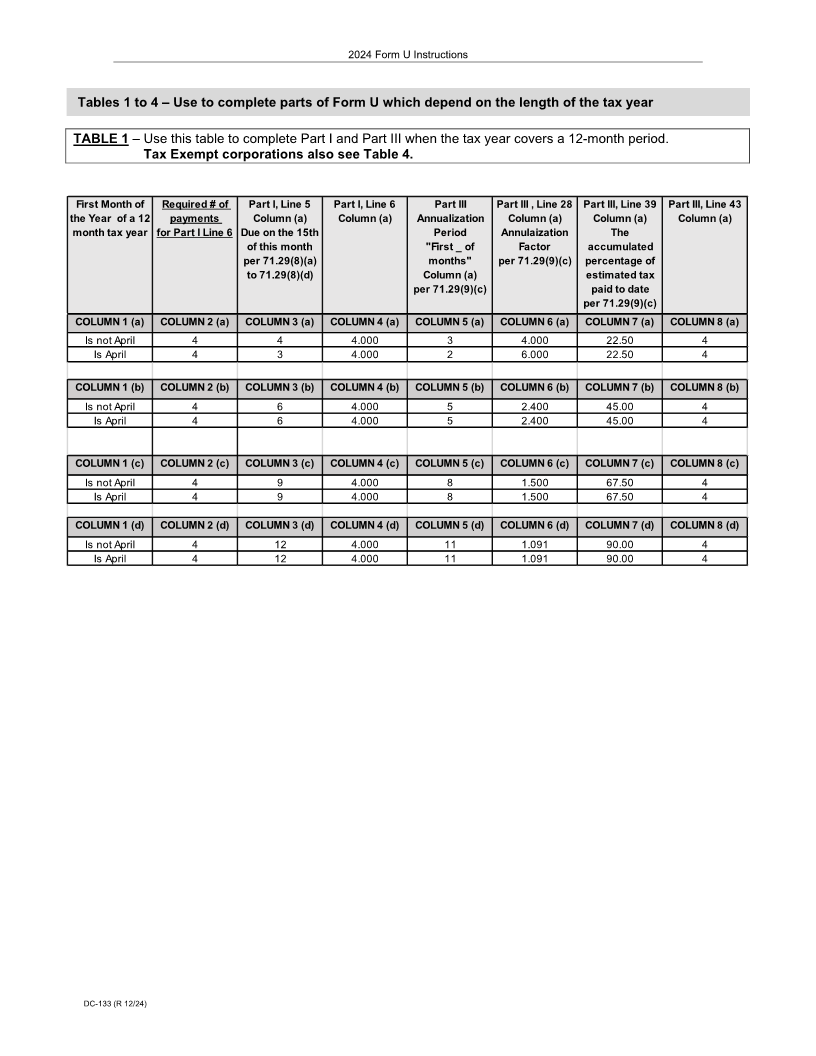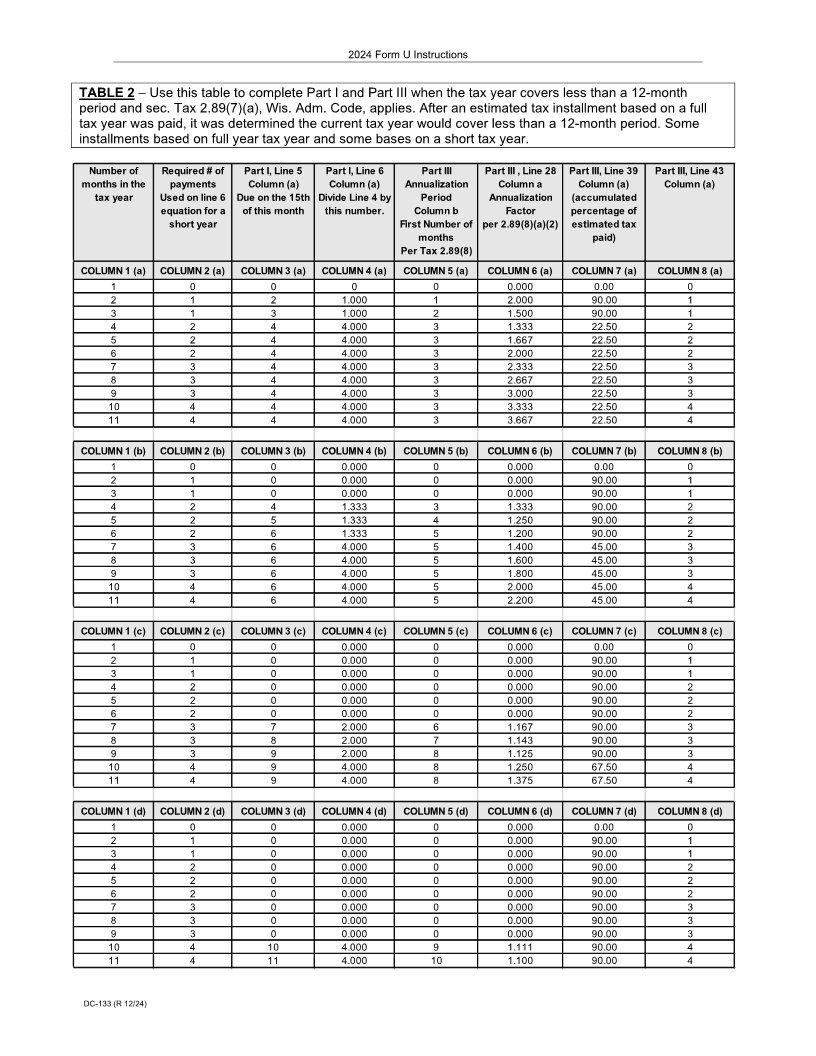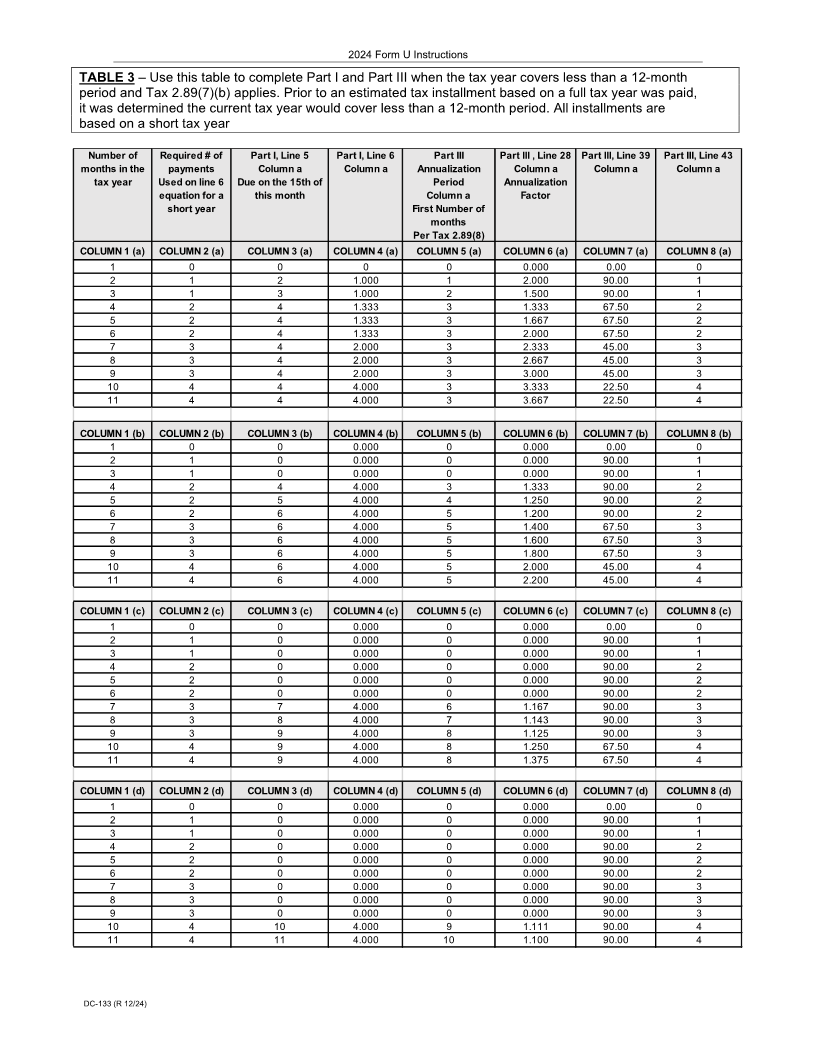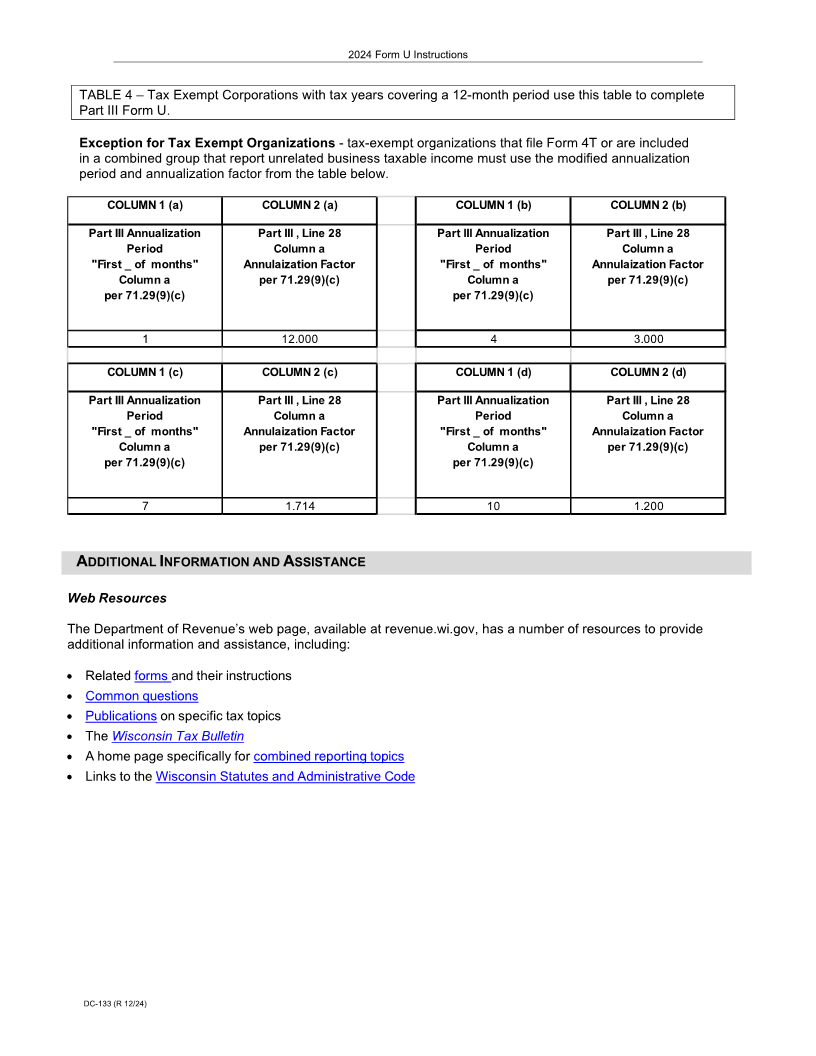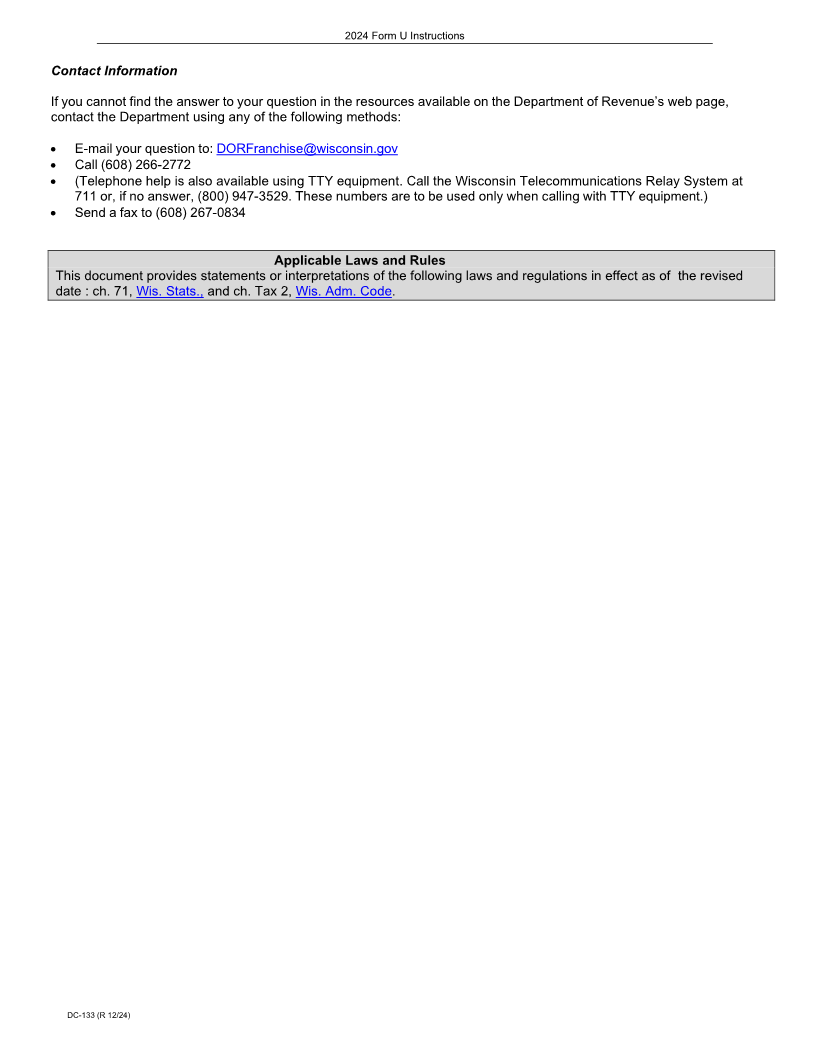
Enlarge image
Instructions for 2024 Form U:
Underpayment of Estimated Tax by Corporations
Purpose of Form U
Corporations, combined groups, and tax-exempt organizations having a filing requirement use Form U to calculate
interest for underpayment of estimated tax.
Form U is also used to compute both extension and delinquent interest whenever the tax due is not paid by the
unextended due date of the income or franchise tax return.
Filing Requirement under sec. 71.29(2), Wis. Stats.
All large and small corporations – File Form U Part I unless one of the exceptions apply.
• A “large” corporation is a corporation having current year Wisconsin net income of $250,000 or more.
• A “small” corporation is a corporation having current year Wisconsin net income of less than $250,000.
Combined Group – Files one Form U because a combined group is considered to be a single taxpaying
corporation.
Entity-level Tax-option (S) corporation – Files a Form U using as a small corporation even if the current year
Wisconsin net income is greater than $250,000.
• An "entity-level" Tax-option (S) corporation is a Tax-option corporation electing to pay franchise or income tax at
the entity level under sec. 71.365(4m), Wis. Stats.
Filing Requirement Exceptions under sec. 71.29(7), Wis. Stats.
• The current year Wisconsin net tax plus the economic development surcharge is less than $500 or,
• The corporation's current year Wisconsin net income is less than $250,000 and the
preceding taxable year was 12 months, and the tax for the preceding taxable year was -0- (without considering
the surcharge) or,
• The corporation is a Tax-option corporation electing to pay franchise or income tax at the entity level under sec.
71.365(4m), Wis. Stats., and the preceding taxable year was 12 months, and the tax for the preceding taxable
year was -0- (without considering the surcharge) or,
• The corporation qualifies for a federal extension of time to file under 26 USC 7508A due to a presidentially
declared disaster or terroristic or military action for tax years beginning after December 31, 2008.
